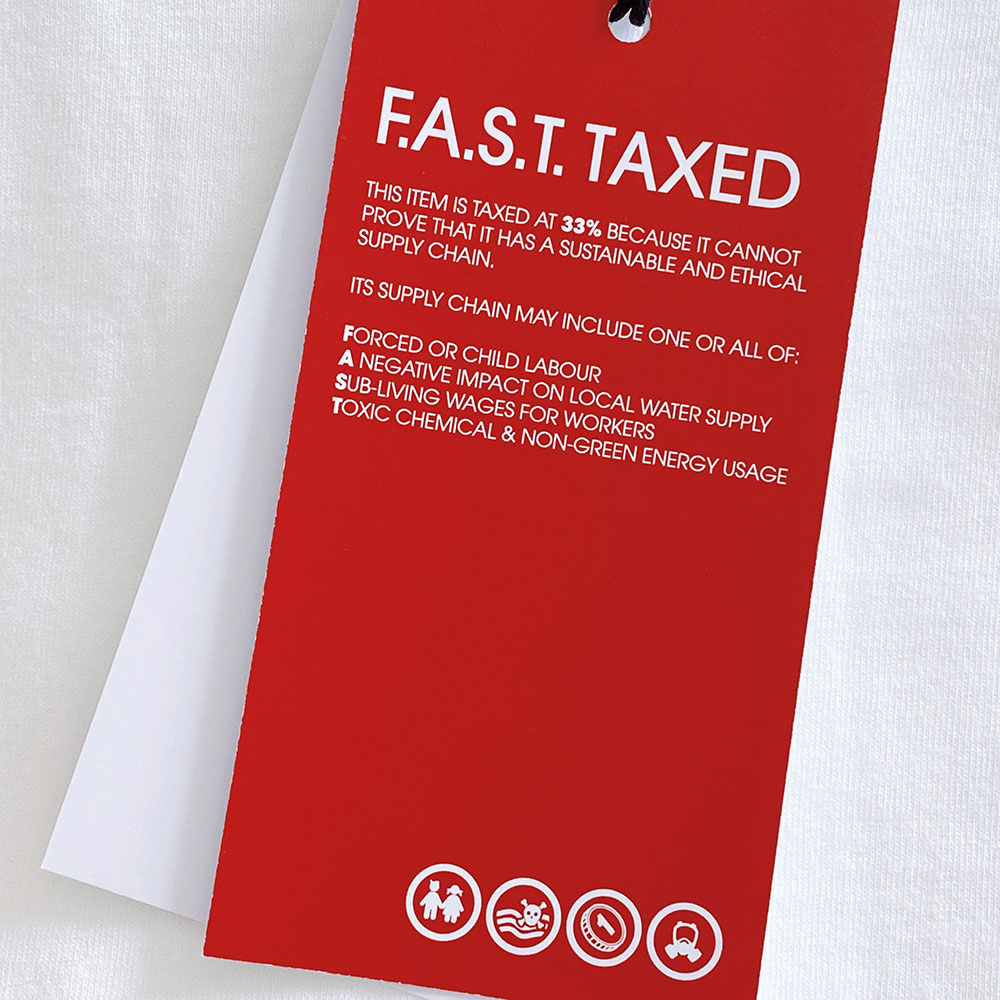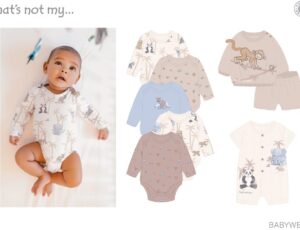Ethical business calls for 33% ‘F.A.S.T’ tax to make fast fashion pay its way

Ethical and sustainable lifestyle retailer So Just Shop is calling on government and regulators to adopt a 33% ‘F.A.S.T.’ tax on the products of brands that cannot prove responsible practices within their supply chain.
The calculations for the 33% proposed F.A.S.T tax take into account that a £4 T-shirt costs £1 to manufacture unethically. However, it should cost £3.78 to manufacture to cover the cost of living wages, water, pollution clean-up and carbon offset. This means the retail price, including operational costs, would be £8.67 – nearly twice as much.
So Just Shop is also proposing flagging the F.A.S.T tax to shoppers with clear labelling explaining what it is. This would make it easier for consumers to choose ethical and sustainable products. Plus, it would close the price gap between fast fashion and ethical products.
The ethical brand behind the calculations says we should stop asking how much more people are willing to pay for sustainable fashion. Instead, we should start asking how much more unethical fashion should be taxed. It is therefore encouraging pressure to be put on the Government to adopt such a tax with a petition that can be signed here.
The F.A.S.T. tax would be levied on companies that cannot prove their supply chain doesn’t include:
- Forced or child labour
- A negative impact on local water supply
- Sub-living wages for workers
- Toxic chemical and non-green energy usage
Commenting is Jennifer Georgeson, co-founder of So Just Shop, which was set up to lift 250,000 women and families out of poverty with a curation of sustainable and ethically sourced fashion, accessories and homeware. “Fast fashion comes at a high cost, whether it’s polluting water near factories, spraying cotton with toxic chemicals, or having child labour within the supply chain.
“These brands can sell items cheaply even if making them harms people and planet. They’re not held accountable for it. I’d like to see legislation and taxation that makes unethical and unsustainable products more expensive and that ensure it is clearly labelled why.
“This move would make it increasingly difficult for brands not to have a transparent, ethical and sustainable supply chain; helping give consumers clearer choices. Either these brands should pay a tax that can be used to clean up after themselves or just see it makes more sense to be ethical and sustainable from the outset.”
Many people are aware of the potential poor working conditions and low wages for people working in fast fashion manufacturing. However, the industry has many other wide-ranging impacts on people and planet. These include:
Water shortage
- Currently, brands are not accountable for the water they use in growing the raw materials for their products. This often means communities where the raw materials grow have dangerously low water supply for their personal use.
Pollution and climate change
- 80-90% of the wastewater that the fast fashion industry produces returns untreated directly into the environment. This then pollutes rivers and groundwater.
- Textile dyeing is the second-largest polluter of water on the planet.
- Carbon used to manufacture the product contributes to climate change. This includes energy not from green sources used in raw material processing and factories.
- Cotton production uses 4% of all world pesticides and 10% of insecticides.
Waste
- Fast fashion manufacturers are also not accountable for the lifecycle of the product.
- The average T-shirt is washed 20 times, releasing microfibres into the water supply and then ends up in landfill. In the UK alone, 10,000 items of clothing are going to landfill every five minutes.
Georgeson continues. “As it stands, those of us who behave ethically and sustainably, ensuring we are paying living wages, using carbon negative or carbon neutral products within our supply chain, upcycling and reducing pollution – basically behaving as responsible businesses and individuals should – are at a competitive disadvantage to those who behave with unregulated irresponsibility towards our planet and its people.
“The myth that sustainable and ethical fashion is expensive exists because fast fashion brands are not paying the true cost of the goods they are manufacturing. We should no longer be at a competitive disadvantage to those who behave irresponsibly and unethically. When you consider the real cost of fast fashion, sustainable and ethical items feel very good value.
“Right now, fashion is not fair for the people who make it, for the planet, or for the people who buy it. We are out to change that. Whilst it’s often suggested it’s the responsibility of the public to seek out sustainable choices, we think it’s up to industry and government to ensure they’re commonplace.”
For further information, please click here or contact sojustshop@welcometoshook.com.












